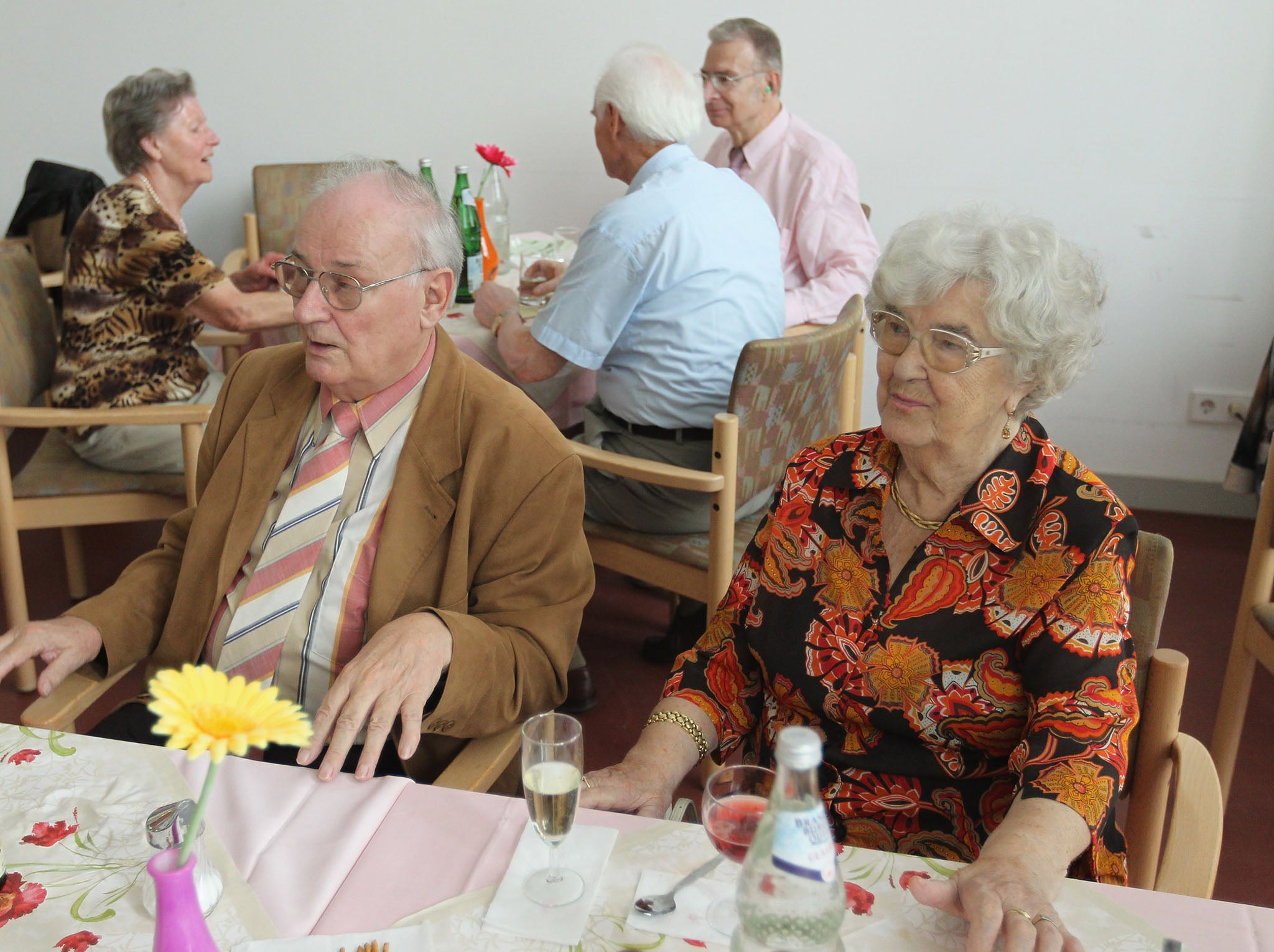Let students live alongside elderly in care homes to fight 'inter-generational apartheid', says report
Think tank calls for more shared spaces to help 'heal divisions' in society

Your support helps us to tell the story
From reproductive rights to climate change to Big Tech, The Independent is on the ground when the story is developing. Whether it's investigating the financials of Elon Musk's pro-Trump PAC or producing our latest documentary, 'The A Word', which shines a light on the American women fighting for reproductive rights, we know how important it is to parse out the facts from the messaging.
At such a critical moment in US history, we need reporters on the ground. Your donation allows us to keep sending journalists to speak to both sides of the story.
The Independent is trusted by Americans across the entire political spectrum. And unlike many other quality news outlets, we choose not to lock Americans out of our reporting and analysis with paywalls. We believe quality journalism should be available to everyone, paid for by those who can afford it.
Your support makes all the difference.Care homes should be used to provide student accommodation and nurseries in an effort to combat “inter-generational apartheid”, according to a new report.
The study by think tank, United for All Ages, warns that older people are becoming increasingly “ghettoised” and lonely in care homes, and rarely talk to younger people apart from family members.
It claims that once family interaction is ruled out, the average Briton has 56 per cent less interaction with other generations than would be expected if there was no social segregation.
To help fight the growing “everyday ageism” within society, the report suggests a range of measures including home-share schemes where younger people live with older people and help them with daily activities in return for reduced rent.
It also suggests universities and schools should be opened up for older people’s programmes and that regular street parties should be held to encourage more mixing of the generations.
Home sharing schemes are becoming increasingly popular in Europe, as young people look for ways to be able to afford tuition fees and increasingly high rents in cities. But these have yet to take off in the UK.
“Britain is increasingly divided by age and by generation," said Stephen Burke, director of United for All Ages.
“Ending age apartheid and promoting social integration between generations can help build communities and a country for all ages, where we are united not divided. In Brexit Britain, that is an ambition worth pursuing in 2017.
“Starting in our neighbourhoods and communities, we can all take responsibility to make it happen. In our ageing society this is the big challenge for social innovation in 2017 and beyond.”
The think tank claims that tackling intergenerational inequality is “the challenge of our age” because of the ageing population.
There are now more people aged over 65 than under 16 in the UK.The EU referendum highlighted stark differences in political attitudes between the generations, with almost three quarters of those who voted in the 18-24 age group wanting to remain, while 60 per cent of voters aged 65 and over chose to leave.
One of the report’s contributors, Janet Morrison from Independent Age, blamed “insidious media coverage of intergeneration unfairness” for failing to reflect the reality of intergenerational relations.
She said: “This belies real relationships – younger people respect and love older people, their grandparents, neighbours and relatives, and they share passions, pleasures and interests.
“But too often lives are lived in parallel – using the same streets, parks, shops and cafes but forced apart, crossing paths now and again, through family gatherings, chats at bus stops or waiting in queues.”
Subscribe to Independent Premium to bookmark this article
Want to bookmark your favourite articles and stories to read or reference later? Start your Independent Premium subscription today.
Join our commenting forum
Join thought-provoking conversations, follow other Independent readers and see their replies
Comments